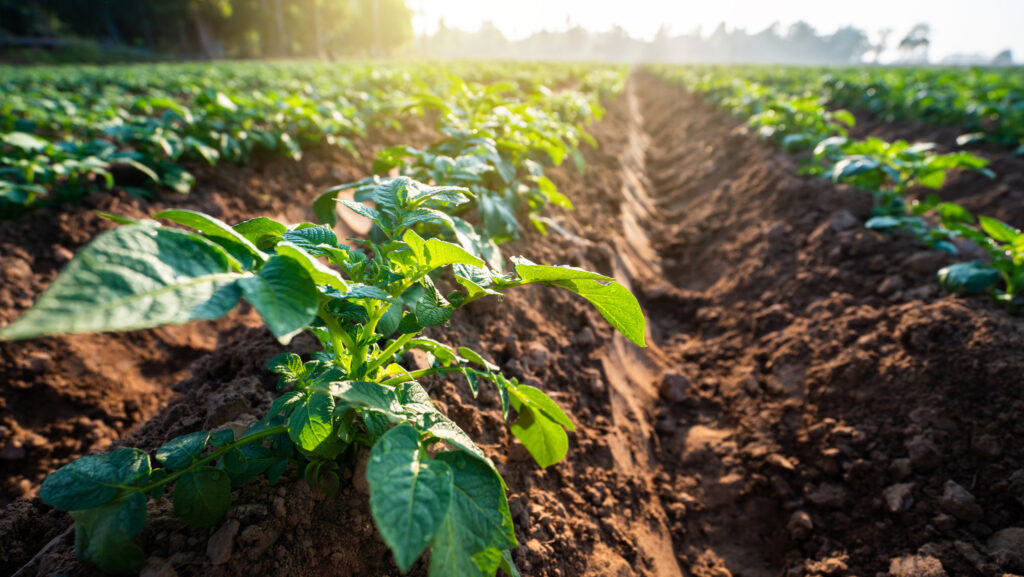Potatoes offered greater protection from aphid attacks
 © Natara/Adobe Stock
© Natara/Adobe Stock Potato growers have the option of managing non-persistent aphid-vectored viruses with a mineral oil following the emergency approval of a paraffin product.
Until now, mineral oil products have only been permitted for use in seed potato crops from emergence up to tuber initiation.
See also: Why industry-wide effort is needed to tackle potato virus threat
But with mosaic virus potato virus Y (PVY) now dominant in British potato production, organisations including Horticulture Crop Protection and the Seed Potato Organisation successfully applied for Olie-H to be used beyond those stages of growth.
PVY is the most damaging of the potato viruses, affecting both quality and yield.
Infected plants can lack vigour, producing smaller and sometimes misshapen or cracked tubers.
When aphids probe the leaves of the infected plants, they can pick up the virus on their mouthparts and transmit the disease to other plants within seconds.
Mineral oils such as Olie-H work by coating the crop’s leaves with a thin film, disrupting the acquisition of virus by the aphid.
Caroline Williams, UK potato crop manager at crop protection firm Certis Belchim, said the emergency approval of its product would help suppress non-persistent virus levels in seed stocks.
VCS Potatoes agronomist Graham Tomalin – who oversees seed potato crops across East Anglia, where PVY is a significant threat – said it was welcome news.
“Olie-H is a useful addition to integrated pest management strategies, with a broad range of measures key to lowering virus levels and maintaining good seed potato health,” he said.

